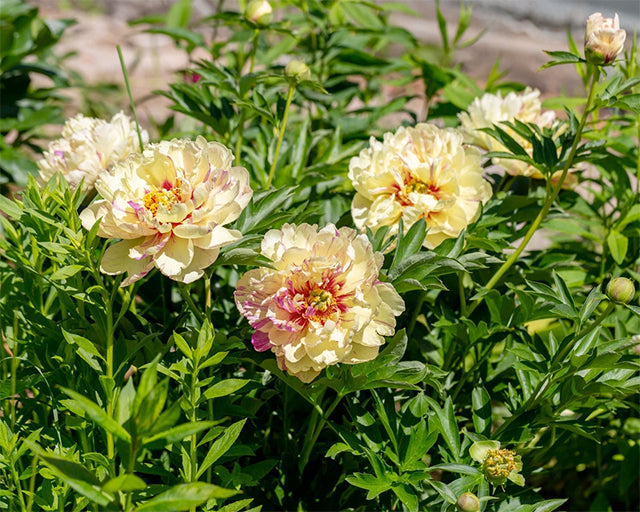
All about Itoh (Intersectional) Peonies
Who isn’t impressed by a beautiful peony in full bloom? These plants are virtually unrivalled in their ability to bring impact and drama to a garden. Once established, they flourish for decades, bringing large quantities of flamboyant blooms in a magical range of colours, as well as outstanding, often finely cut foliage. And, as I write this, the buds on the peonies in my garden are swelling day-by-day. The excitement I’m feeling about them opening is palpable. In this blog post, I will tell you more about a special group of peonies: Itoh Peonies.
Now, there are herbaceous peonies and there are tree peonies. The herbaceous types are generally lower-growing (although not necessarily by much), whilst tree peonies are taller and woodier. Also, tree peonies are visible all-year-round as they don’t die back to nothing in winter, unlike the herbaceous types.
Both types are worthy of garden space, and I’d fill my garden with them if I could. For many of us, however, space is at a premium, and we might only have room for just one or two peonies, so why not choose something that enjoys the best of both herbaceous and tree peonies?
Yes, there is a group that combines the perfect mix of the two. These are called – a bit of a mouthful I’m afraid – Intersectional Hybrids. Mmm – not a very friendly name. So, let’s use a better name. Let’s call them the Itoh Hybrids or Itoh Peonies – pronounced ‘ee-toe’! To discover more about them, we need to go back in time.
Dr Itoh and his conquest for the yellow peony?
In the early 1940s a Japanese doctor, Toichi Itoh from Tokyo, decided that he wanted to see if there was any merit in crossing a herbaceous perennial peony with a woody tree peony. His initial idea was to produce a truly yellow, double flower on a herbaceous peony; the doesn’t exist in nature, and the only real yellow herbaceous peony is with the fleeting but beautiful P. mlokosewitschii, also known comically as Molly-the-Witch (because we Brits found it impossible to pronounce the Latin name!).
But what Toichi Itoh actually ended up with was something much better than a mere yellow herbaceous peony!
He started by using pollen from the yellow tree peony ‘Alice Harding’ to fertilize the herbaceous peony Paeonia lactiflora ‘Kakoden’. For many years he cross-pollinated the blooms, saved and grew the seed, discarded the ones he didn’t want, and refined the selection so that eventually, after several thousand crosses, he ended up with a few dozen yellow seedlings. The eventual result was a new plant category, which became known as Intersectional, or Itoh Peonies.
The cultivar ‘Yellow Crown’ ↑ was one of the first four Itoh Peonies to be released, and it has stood the test of time so well that Farmer Gracy still offer it today, along with many other newer forms.
The sad irony is that Toichi Itoh died in 1956, and the first real flowering and acceptance of his hybrids did not take place until 1964. He didn’t live to see his success, but I do suspect that he knew his creations were entirely unique.
Although I like to refer to them still as Itoh Peonies, many varieties and different colours have appeared over the years. These, of course, have had nothing to do with Itoh himself, so it is more accurate to call them by their correct name, Intersectional Peonies.
What are Itoh Peonies like?
Itoh Peonies are like their herbaceous cousins: short in stature, and most varieties form a dense mound. But they also have short, woody stems, like a tree peony. The flowers and leaves are in perfect proportion to one another, taking the best from each of the parents. Leaves are large, leathery, deeply divided and mat or glossy. The plants flower essentially at the same time as herbaceous peonies (from early to late June) but, because they have so many buds, they are in bloom for far longer.
The flowers are big, too, and generally they are semi-double. They open from large, beautifully shaped buds into deep bowl-shaped blooms, that tend to loosen and become lax as they age. And a bloom can last as long as five days: at night it closes up for protection. It is entirely possible, too, that there will be occasional flowers much later in the year (particularly on the cultivar ‘Bartzella’, another of the those offered by Farmer Gracy). In the autumn, the leaves of Itoh Peonies turn red, then simply and elegantly drop and fade to nothing.
These peonies demonstrate good resistance to the dreaded and usually deadly peony wilt disease – I have never see any of them affected by it!
Today, Intersectional Peonies can be found in a wider range of colours than any other peony group, from yellow and white, through creams and apricot, to pink and various shades of red. And some have colours that morph into others, for a two-, three- or multi-toned look. However, because they are still reasonably new, and stock is quite rare, and this is why most Intersectional Peonies are considered expensive when compared to normal peonies.
How do Itoh Peonies grow?
They enjoy the same garden conditions as both herbaceous and tree peonies: a reasonably fertile, well-drained soil (ideally neutral to slightly acid). They prefer a spot in full sun, but they will grow perfectly well in a place that has a little shade for part of the day.
- Itoh Peonies can also be grown in patio pots, the bigger the better, but you will need to be careful about watering: do not let the plants dry out in spring when the buds are swelling, ready to burst open;
- Farmer Gracy offers its top-size (3/5 eyes) Intersectional Peonies as bare rooted plants. These need to be planted into the ground, as soon as received, with their reddish leaf buds ideally 2-5cm / ¾-2" below the soil surface – any deeper than this and flowering may be suppressed;
- In autumn, after the leaves have dropped, I leave the branches well alone and then, in late winter, I cut the dead woody growth back to a few centimetres from the ground. If there are clearly visible new buds low on the stem, I cut back to these;
- Fertiliser is not required as this can make them too leafy at the expense of flowers. Neither is staking required, as the woody branch framework is sturdy enough to stand on its own! Plants don’t need dividing – unless they get too big after many years of growth. To do this you’ll need to use a garden fork to lift it out of the ground, and then a saw to cut through the crown.
What's available?
Recently, Farmer Gracy has extended it amazing range of Intersectional Peonies, so let’s look at the cultivars:
-
Peony ‘Magical Mystery Tour’ ↑
Beautiful, semi-double, scented, soft peach-pink flowers, with the faintest hint of lavender edging. Each centre comprises a small cluster of stamens, while red flares taint the base of the petals. Blooms turns paler with age.
Height: 60-75 cm / 24-30"
-
Peony ‘Lollipop’ ↑
This is a most unusual and sought-after hybrid. In late spring and early summer, the flowers emerge pale apricot-yellow and, as they age, develop a pinkish tinge with purple flecks and stripes. They are delicately scented.
Height: 75-80 cm / 30-32"
-
Peony ‘Julia Rose’ ↑
Stunning large, silky, semi-double blooms change colour over time. They start as buds of cherry red, opening to young blooms of apricot-orange, and pass through rose-pink with an inner glow of yellow, coming from the depth of the petals. The plant can display three types of colour at once; each bloom can be 10-15cm / 4-6" wide, and there could be as many as 30 open on a plant – making it a truly spectacular garden feature. The flowers also have a rich, spicy fragrance.
Height: 60-70 cm / 24-28"
-
Peony ‘Cora Louise’ ↑
This produces semi-double flowers of stunning yellow-cream, with maroon flares and Picotee edges. Its finely divided green foliage has reddish tinges in spring and autumn, all held on sturdy branches.
Height: 60-75 cm / 24-30"
-
Peony ‘Bartzella’ ↑
A semi-double to double Itoh Peony, with very large sulphur-yellow flowers, up to 20cm / 8" across. Red flares exist at the bases of the petals, too, and the blooms have a lovely lemon-like fragrance.
Height: 60-90 cm / 24-36"
-
Peony ‘Callie's Memory’ ↑
This produces semi-double flowers of stunning yellow-cream, with maroon flares and Picotee edges. Its finely divided green foliage has reddish tinges in spring and autumn, all held on sturdy branches.
Height: 60-75 cm / 24-30"
-
Peony ‘Yellow Crown’ ↑
The large golden-yellow, semi-double flowers of this cultivar – one of the first of Tiochi Itoh’s peonies to be introduced – can be 25cm / 10" across. They have small red flares at the bases of the petals, too!
Height: 60-90 cm / 24-36"
■ Incidentally, do you know how the peony got its name? I suggest you sit down for this: Paeon was the Greek god of medicine and healing (and was also known as Apollo). Some say he was a student of Asclepius, while others say Asclepius was his son. Anyway, Asclepius became jealous of Paeon but, fortunately, Zeus – the god of the sky, lightning and thunder – saved him from Asclepius’ wrath by turning him into a flower – which was given the name of the hapless victim. Apparently, this is all true!
 |
Graham Clarke |




























































































































































































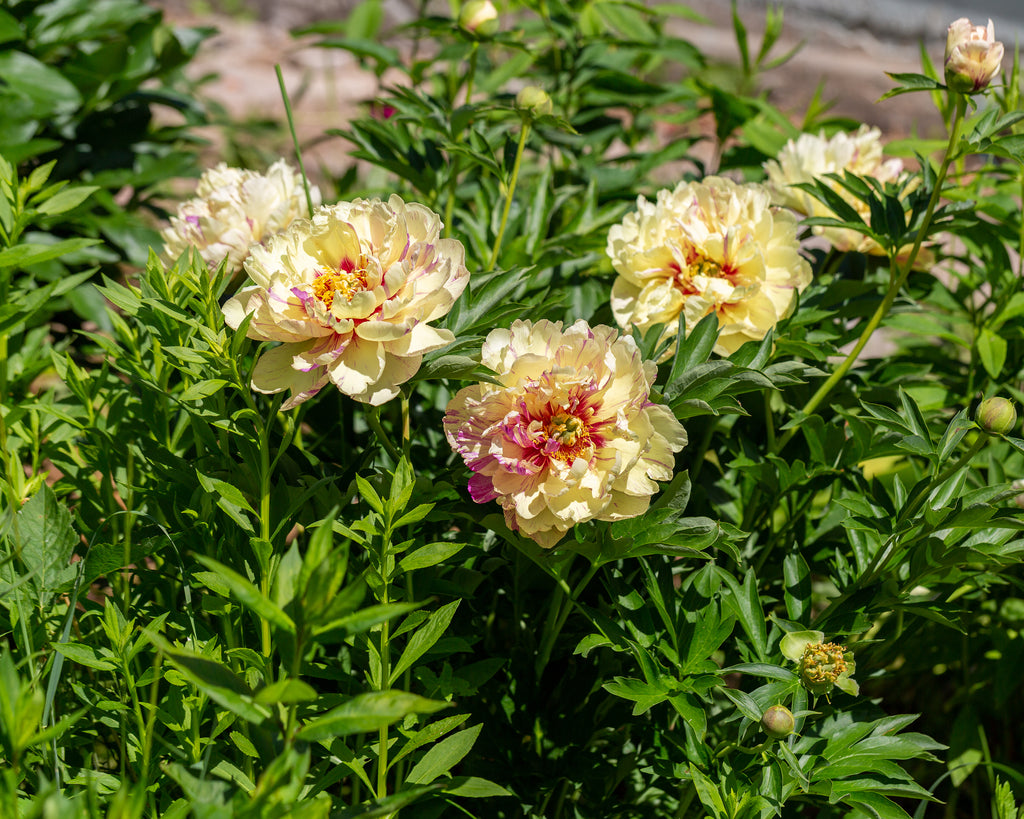




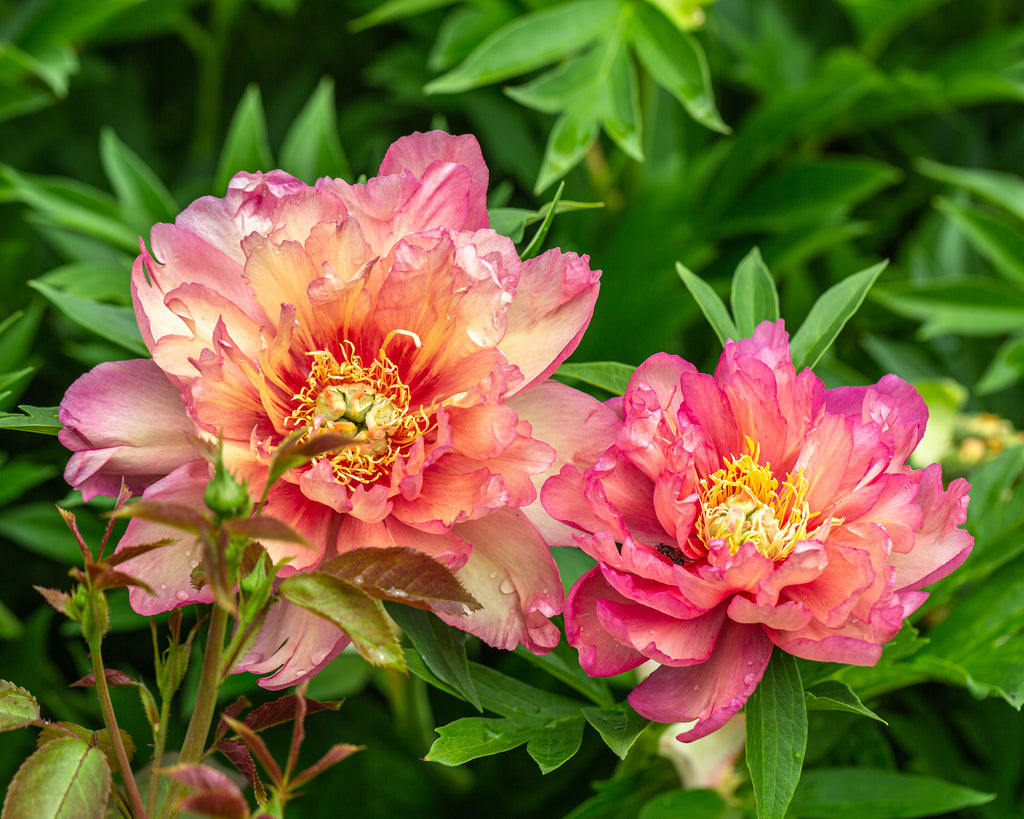







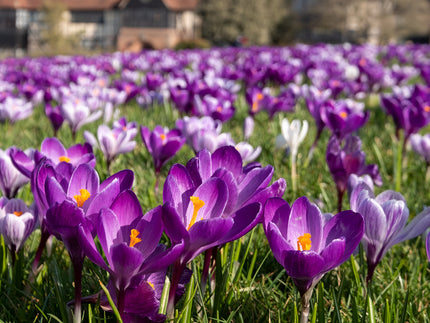
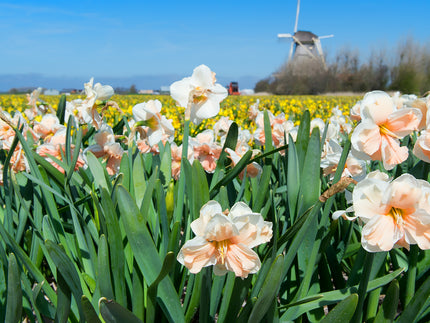
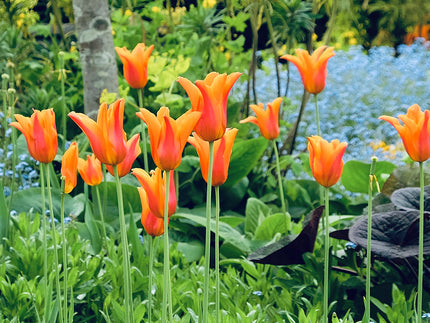
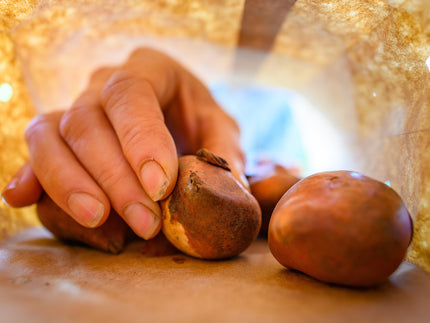

465 comments
cpKGFmMJSDOoVwn
lAuOhMHFmJSkPL
GvgNlmCDuWcSJM
tUkCYSPJO
RntzipohuNOy